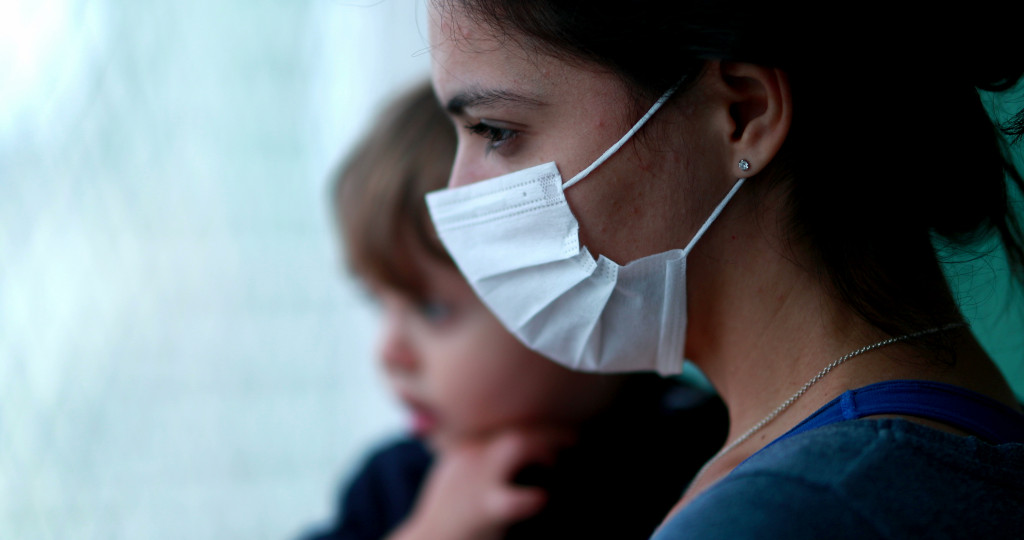Children are susceptible to the same risks as adults when it comes to coronavirus infection. They also tend to be more active, making it harder to maintain social distancing and hygiene practices. In fact, according to The American Academy of Pediatrics, the COVID-19 cases among children dramatically increased in 2022 when the Omicron variant took place during winter, rising to 1,150,000 reported cases in just one week.
And as of July 2022, the number of children who tested positive for covid-19 is roughly 13,911,565. This data only shows that children are not spared from this pandemic. So what can you do as a parent to keep your child safe? Here are some tips:
Keep them up-to-date on the latest information about COVID-19
Children are smarter than you think. They know something is wrong and will sense if you’re trying to hide the truth from them. So make sure you keep them updated on the latest information about COVID-19 in a way appropriate for their age. This will help them understand the situation and why it’s essential to take precautions.
Some kid-friendly resources are available online, such as the CDC’s website, which has a section on coronavirus disease, and the WHO’s website. This will help them understand why they must follow certain practices such as social distancing, wearing a mask, and washing their hands.
Have them tested at least once a month
Some kids do not show symptoms even if they are infected with COVID-19. This is why you must have them tested at least once a month, so you can catch any infection early on. You can ask your child’s pediatrician about this or look for covid-19 testing sites for kids in your area.
This is particularly crucial if your child often comes in contact with other kids, such as in school or daycare. It’s also a great way to protect other family members, as kids can quickly spread the virus even if they don’t show any symptoms.
Encourage them to practice good hygiene habits
One of the best ways to prevent coronavirus infection is by practicing good hygiene habits. This means washing their hands regularly with soap and water for at least 20 seconds, avoiding touching their face, and sneezing or coughing into their elbow.
As you teach them how to properly wash their hands, make it fun by singing a song or using hand sanitizer with an interesting smell. You can also put up posters in the bathroom as a reminder.
For younger children, supervise them when they’re washing their hands to make sure that they’re doing it correctly. It would also be helpful if you set a good example. Practice good hygiene together, so they’ll know it’s important even for adults.
Encourage them to practice social distancing
The World Health Organization recommends that everyone, regardless of age, practice social distancing. This means staying at least six feet away from other people, especially if they’re sick.
You can explain to your child why keeping a distance from others is essential. You can also teach them how to properly greet people without physical contact. For example, they can wave or do an elbow bump instead of a handshake. A simple wave from a distance can go a long way in preventing the spread of the virus.
Make sure they wear a face mask when in public

Not everyone is fond of wearing masks, but your child must wear one when they’re in public. This will help protect them from exposure to the virus. You can involve your child in choosing their face mask. Let them pick out a design or color that they like. You can also make it fun by turning it into a game. For example, you can have a contest to see who can wear their mask the longest.
You should also explain to them why wearing a face mask is important and tell them that it will help protect them and other people from getting sick.
Monitor their symptoms closely
Even if your child is healthy, it’s essential to monitor their symptoms closely. This way, you can catch any infection early on and get them the treatment they need. Some symptoms to look out for include fever, coughing, difficulty breathing, and fatigue. If your child starts showing any of these symptoms, bring them to the doctor immediately. Don’t wait for the symptoms to get worse.
Final thoughts
The COVID-19 pandemic has brought a lot of challenges for parents, especially when it comes to keeping their children safe. But by following these tips, you can help keep your child safe and healthy during these difficult times. Stay vigilant, and don’t let your guard down. The virus is still out there, and everyone must do their part to prevent its spread.








